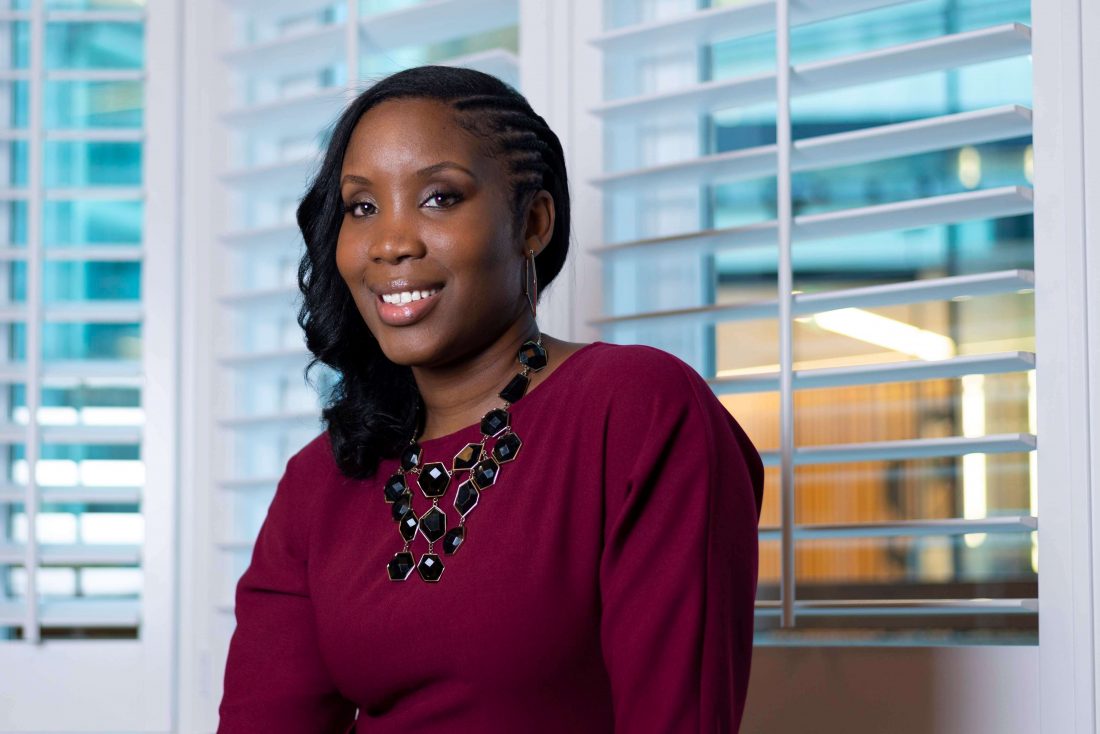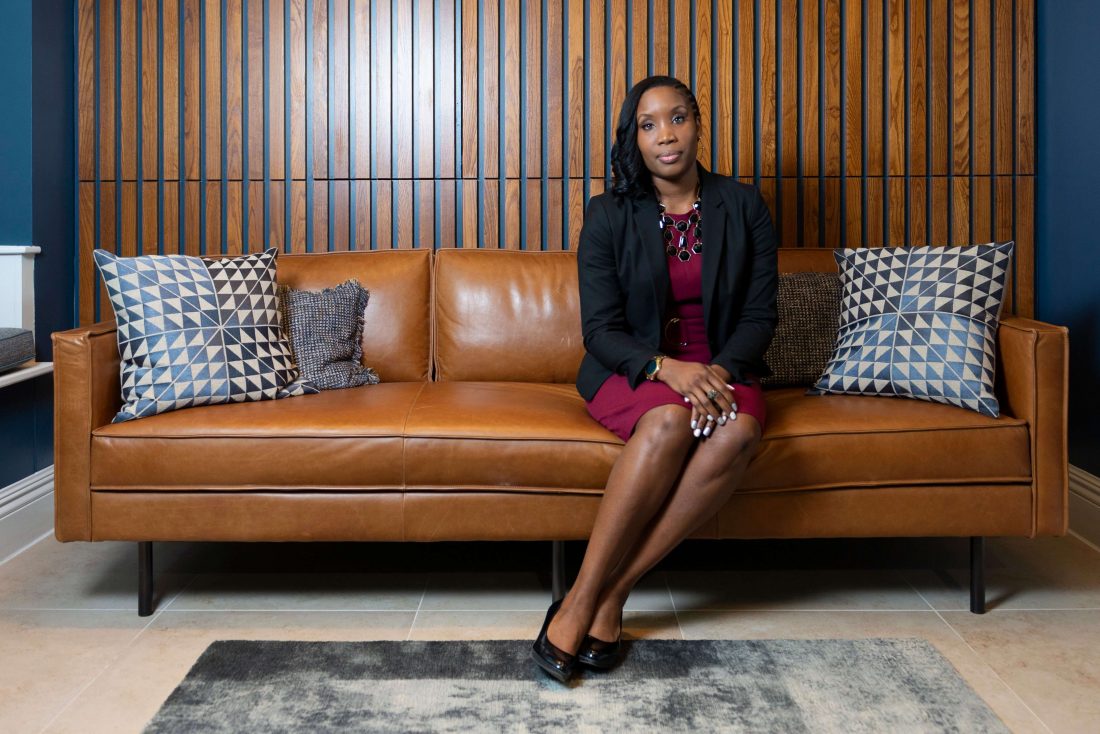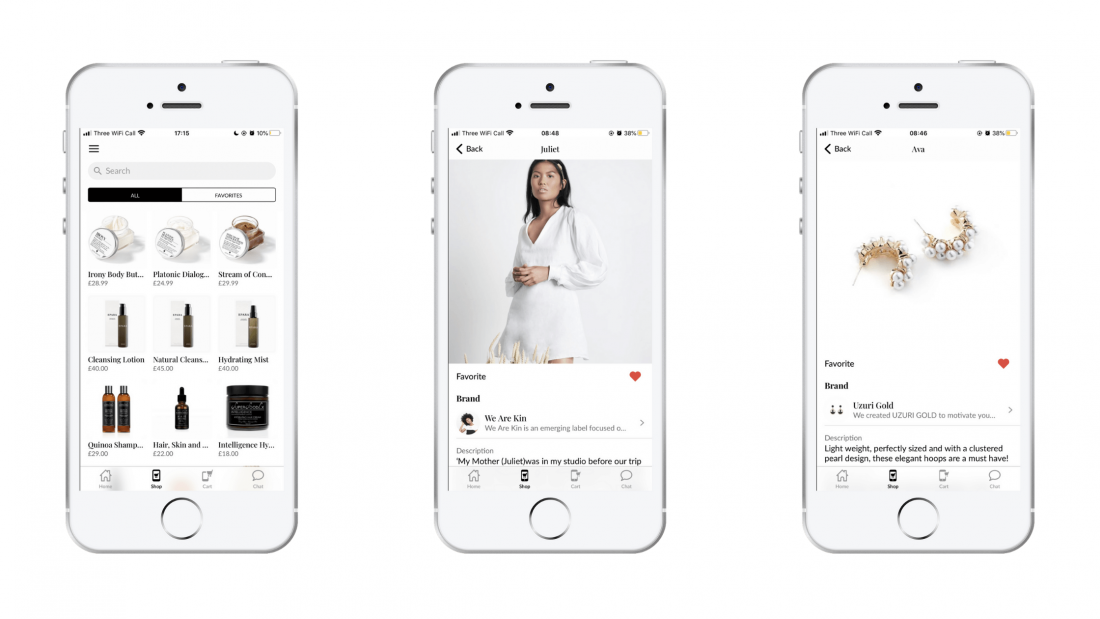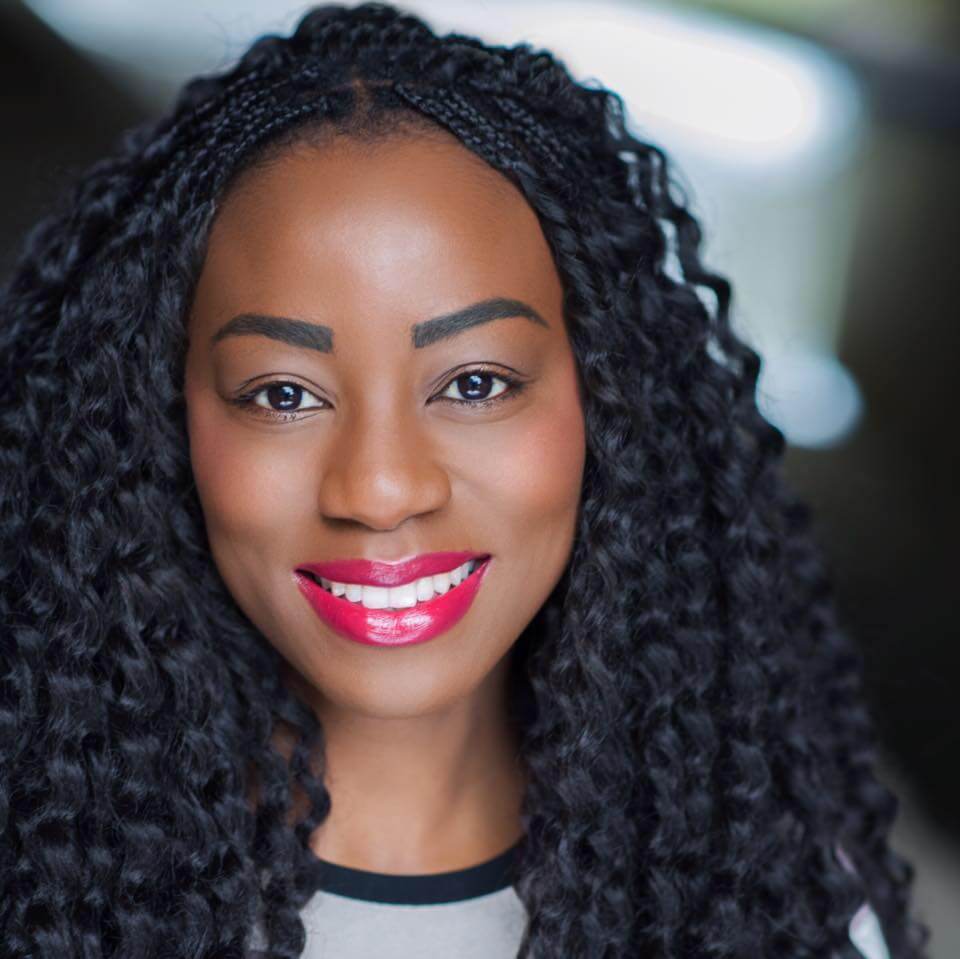As we approach the second Black Pound Day on Saturday 1 August, the big questions are how can we sustain the momentum of shopping Black and how do we ensure sustainability for Black-owned businesses? Melan spoke to two female entrepreneurs to learn more.

Business consultant, Daniella Genas, from Birmingham has always supported Black businesses where she can as both a coach and a consumer.
“If Black businesses win then the Black community wins,” she began.
“Since Black Pound Day, one of the things I’ve found to be quite interesting is this conversation that if you advocate for buying Black then it means you’re racist. It doesn’t make any sense. In other communities people are happy to shop from each other and I think it’s only the Black community that struggles to do that for the most part.
“I’ve loved seeing so many people being conscious in choosing to buy Black and also seeing a lot of the businesses push their marketing and trying to attract customers, not just within the Black community but outside of.”
“I’ve loved seeing so many people being conscious in choosing to buy Black and also seeing a lot of the businesses push their marketing and trying to attract customers, not just within the Black community but outside of. People from outside of the community are making a concerted effort to support Black Pound Day too. I think it’s a great initiative and hopefully it will continue.”
Black Pound Day, founded by So Solid Crew rapper Swiss, takes place on the first Saturday of each month. It’s a “solution-based approach to support the growth of the UK Black economy,” the website says.
The lead-up is exciting. Our social media feeds are livened up with incredible #Blackowned threads. Even if we haven’t spent any money, the ability to discover new brands and professionals is powerful and the kind of uplift small businesses need.
She’s the Boss founder Daniella agrees, but as someone who has a long track record of supporting small and medium-sized enterprises, Black Pound Day must be “underpinned with more financial investment into Black businesses and more business support,” she added.

“Black Pound Day is fantastic for shining a light on businesses and giving them cash injections, which is essential, but it’s also important to put the onus on founders to build their businesses sustainably.
“One of the key things so many more Black start-ups should do is to get help from somebody who has proven results with other businesses. You wouldn’t decide you’re going to become an Olympic athlete without a trainer and if someone did say that, you’d laugh at them. That’s one of the key areas we fall down before we’ve even started.”
According to a 2013 Government report, ethnic minority businesses were cited as contributing £25billion to the economy but our “would-be entrepreneurs” faced considerably more barriers when attempting to finance their start-ups.
These included collateral shortages, poor credit worthiness, a lack of formal savings and a poor financial track record.
Venture capitalist Eric Collins recently said he wants to invest £100million in underrepresented entrepreneurs across the UK and Europe through his Black-owned firm Impact X Capital.
“Black businesses are routinely underfunded, including by some Black investors, and it’s even worse if you’re a Black female.”
He told Forbes just 1% of venture funding goes to Black entrepreneurs and in an op-ed piece said Black-led businesses are more likely to be rejected for funding as “most investment goes to companies founded and led by white men”.
Daniella said: “I remember being at a speaking engagement when I was starting my first business and a white guy had spoken before me. To start his business, he went to his dad, who gave him £9,000. His business partner’s dad gave them £9,000 and then they asked the bank to match it.
“Black businesses are routinely underfunded, including by some Black investors, and it’s even worse if you’re a Black female. I had someone say to me after an investment pre-panel to inform a Black woman that she came across “too shouty and aggressive” and they didn’t understand her business idea, which was focused on servicing the Black community. I point blank refused to do that. The people at the other side of that table had preconceived opinions about her and didn’t actually listen to anything she said.
“It’s very easy to say: “Black people can’t do business,” but there are a number of issues that impact us and sometimes we’re risk averse, which is understandable when you don’t come from a lot. There’s a lot of Black people, myself included, doing very good business, but we’re not necessarily as visible from a consumer perspective.”
A surprising outcome after Black Lives Matter protests was how many influential white women began sharing Benedicta Banga’s platform online.

She started working on the fashion and beauty shopping app Blaqbase last summer with the mission to connect customers with high-quality Black-owned brands to dispel the myth that they are inferior.
She said: “When I was doing my research, what I found was not everyone was open to shopping Black because of this general misconception that the products are sub-par, so I wanted to focus on highlighting the great brands out there. The feedback I had from Black owners was that other ethnicities were more receptive to their products than Black people. Since the protests, that whole dialogue has shifted and the market is far more ready to use and support Black-owned brands.”
Following Black Lives Matter protests and Black Pound Day, Benedicta’s business, like many others, is dealing with significantly increased demand and visibility. This is a double-edged sword, she explained.
“Generally, in the past, people have been quite unforgiving if there are mistakes and will quickly voice their discontent. … It’s just understanding that where we’re starting from isn’t the same as what you’re trying to compare us to.”
“Generally, in the past, people have been quite unforgiving if there are mistakes and will quickly voice their discontent. People want that seamless shopping experience and to have the same experience as they’d get on the high street with a small business owner which doesn’t have the resources. It’s just understanding that where we’re starting from isn’t the same as what you’re trying to compare us to.”
There is a huge knowledge gap surrounding how to scale up a business, Benedicta has observed, so it means small firms are at a disadvantage during a surge in demand.
The same transparency around sharing business information that Benedicta has gained from in the tech industry isn’t necessarily replicated in other sectors. This is something she believes must change in order to manifest the economic empowerment Black Pound Day was designed to.

She said: “It doesn’t always have to be trial and error because the one to three generations we’re trying to change, the better we get to grips with it now, the better it will be for them if you’re looking at it holistically.
“The entrepreneurs in Blaqbase, for instance, they’re trying to do stuff nobody in their family has ever done. They don’t have a blueprint so there has to be an understanding that if we want to succeed and if we want the next generations to feel the difference, there’s going to be a generation that feels the pain first. What we need more than ever is for people to be supportive and not compare apples with pears.”
As various Black-owned economy groups and business directories emerge to become further catalysts to economic empowerment, so do potentially unfavourable opinions such as whether the premise of shopping Black becomes compromised if the entire supply chain isn’t Black-owned.
“Do we have Black people that own factories and large-scale manufacturing facilities and warehouses today? Maybe in certain countries we do, but are they visible?” Benedicta questioned.
“I might have a Black woman who’s retailing something she wholesales from somewhere else, but this is still valid because that money is going directly into a Black household.”
“The way I view it in my support of Black-owned brands for Blaqbase is, ‘Is there a Black person behind the initiative?’ I might have a Black woman who’s retailing something she wholesales from somewhere else, but this is still valid because that money is going directly into a Black household.
“The supply chain doesn’t have to be all Black. We’re not trying to be an island in all of this and that’s why you have global trade because nobody has all the resources they need to do everything.
“I’m very pro-Black Pound Day but what I’d say to be wary of is, it becoming one huge discount day. It doesn’t need to be about that. But I don’t think there’s anything wrong with making a conscious effort to make substitutes. It needs to be a conscious effort until it becomes a lifestyle.”
Written by Vicky Gayle – Follow her: @vi_gayle












